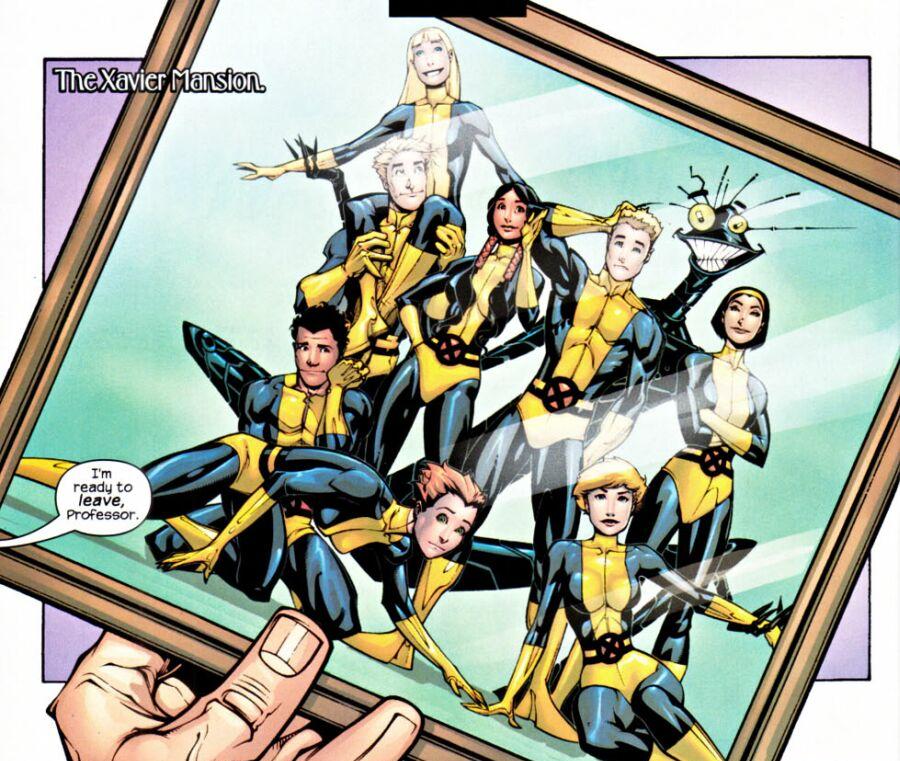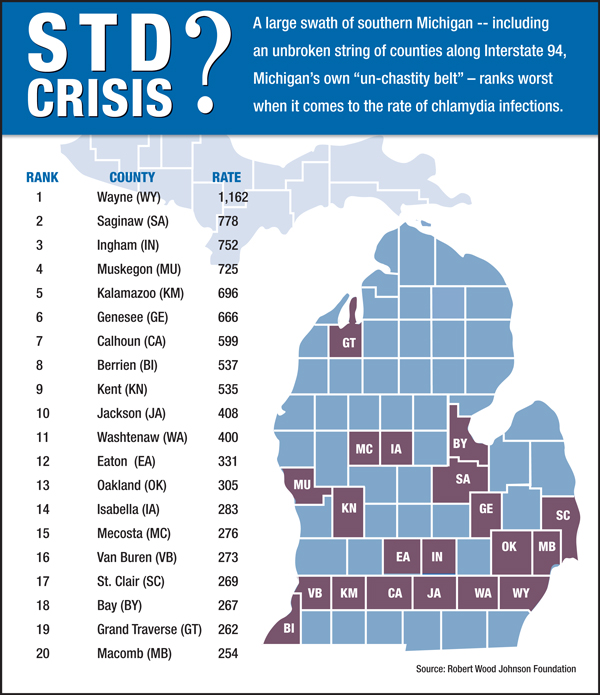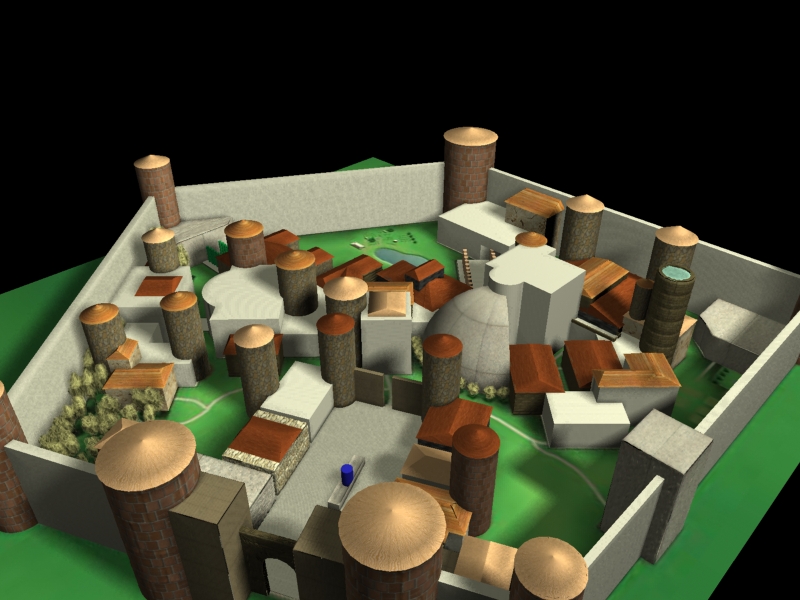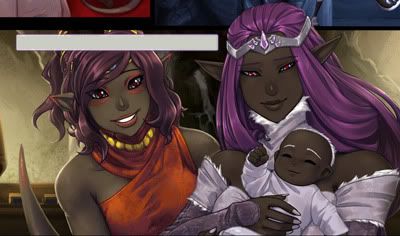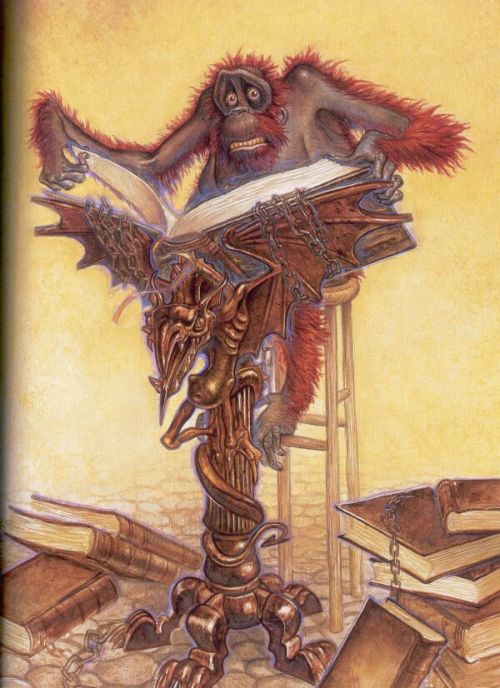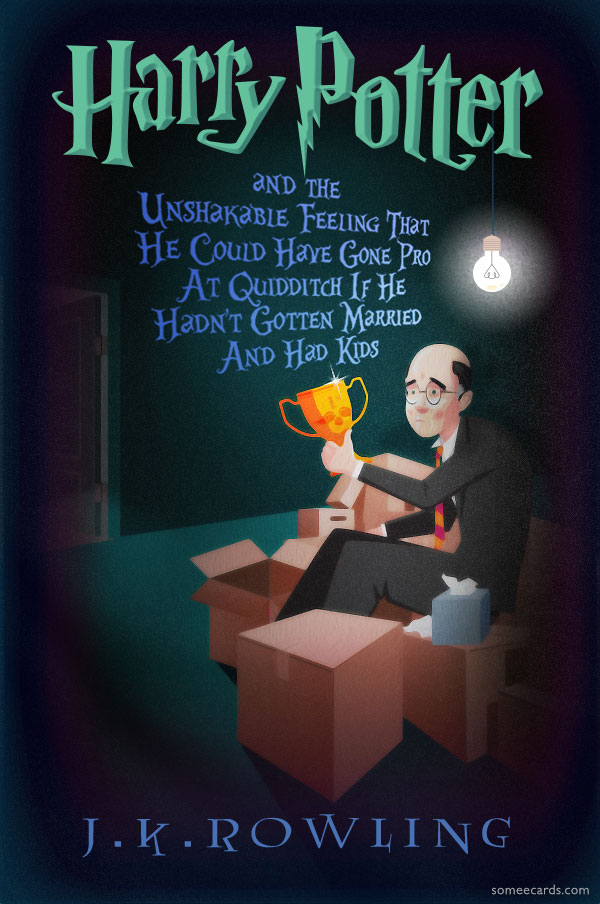Student Handbook
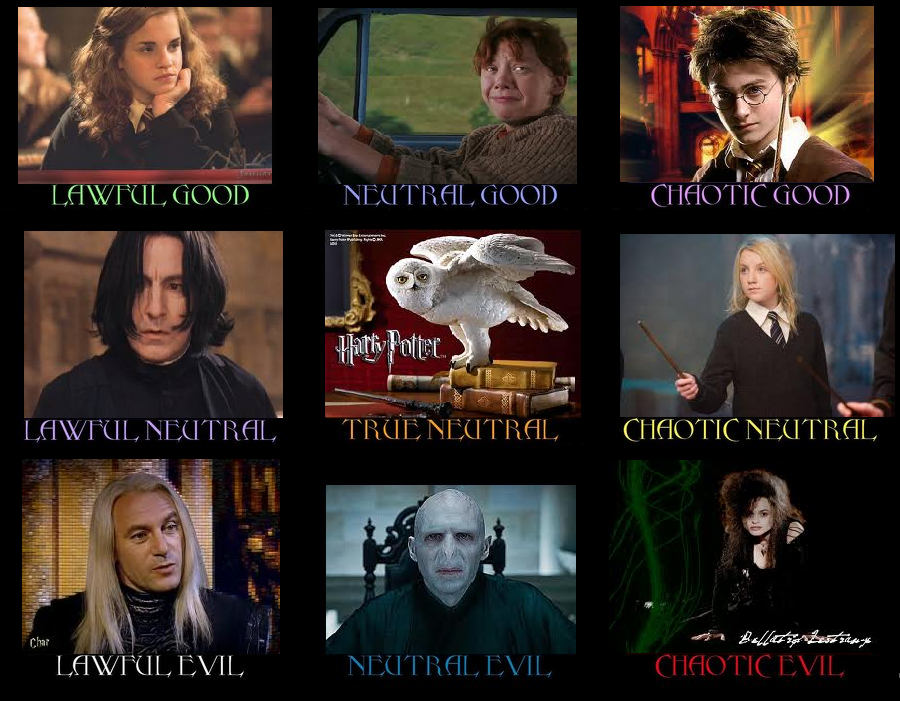
Yeah, we went there.
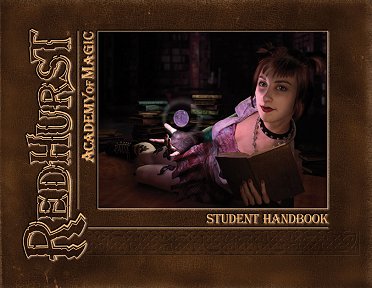
So did they.
I found this thing wedged into the sprawling, ill-organized back wall of my favorite local used book-and-record store in Tampa. It stood out - literally - from the rest because it's been published in a horizontal format (i.e. it is wider than it is tall; the authors call this "widescreen format," I call it "does not fit well on a shelf"), which makes it look like somebody mis-shelved a children's book next to the copies of Heavy Gear. The first curious flip-through did not seriously challenge this assertion, because this book is seriously a half-priced Harry Potter sourcebook for d20. I didn't seriously twig this was actually an RPG until I saw that Margaret "Books of Heavy-Ass Metal" Weis had written the introduction.
Naturally, I felt this was ripe for an OSSR, and Frank agreed.
People always want to bring stuff from their favorite fantasy stories into Dungeons & Dragons. Hell, Gygax and Arneson were doing that when they invented the damn thing. Trolls are green rubbery regenerating giants that fear fire because Gygax really liked Three Hearts & Three Lions. Treants and Halflings were originally called Ents and Hobbits because Arneson and Gygax loved Tolkien more than Tolkien's lawyers loved them back. And so on. But D&D is also over forty years old, and even in 2003 it was 30 years old. There are fantasy series that have become popular that D&D players have grown up with that were written after D&D hit the shelves. Hell, some of them had writers that were in part inspired by games that were inspired by D&D (Game of Thrones, I'm looking at you).
But D&D is not the wild and wooly wilderness where nothing fucking works and anyone can bring in a battle bishop vampire hunter or whatever the fuck and have the authors of the game fit that into the world on the fly. Hell, the authors of the game are dead. These days, and for over two decades now, D&D has been fairly nailed down in what it does and does not do. D&D is now its own genre, and it has what it has in it and not other things.
This is D&D's answer to every single attempt to get the creators to add anything to the base system.
Which is not to say that you can't add bird men or a new form of weather control or even a whole new flavor of magic to D&D – it's just that you have to add them on D&D's terms. And those are actually pretty specific these days. You can never add a fifth great race, because D&D already has hundreds of races. You can never add the mystery of discovering magic because the game puts magic users in on the player side from level 1. And so on.
Now there are lots of things that keep coming up because people want them and they aren't in the game and that seems weird to people. There's no support for playable swashbucklers who wear tight pants and blouses and have thin swords and pencil mustaches. There's no reason for that to be missing, it's just that D&D combat largely revolves around how heavy your armor is, and the mechanical support happens to not be there. Also people want to play warrior mages who alternate between casting mighty magics and swinging a rune sword around. There's no particular reason that isn't supported, the mechanics for that sort of thing just happen to suck monkey ass. Other things people want are conceptually incoherent. People are constantly asking why they can't play low powered concepts and contend against high powered challenges and still win. Or asking why they can't play an underdog who is vanishingly unlikely to win and does anyway like in most fantasy paperbacks from the spinning rack. You can't do those things because they are incoherent demands.
But this book isn't about any of that. This book is about wanting to do Harry Potter adventures in D&D. That doesn't work for a whole different set of reasons. Mostly having to do with the fact that D&D really doesn't have any space at the bottom. A starting character is already a trained warrior and yet their numbers really aren't that big. Level 1 really isn't that much higher than Level 0, and characters any weaker than starting PCs have quite a bit of difficulty with house cats.
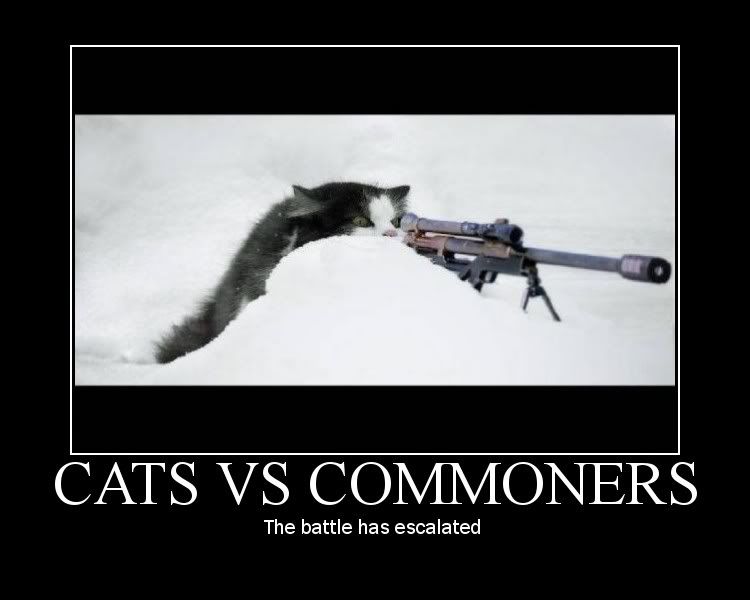
The general inability of common humans in D&D to reliably win battles to the death against small furry animals was considered funny enough to generate demotivators. Because the internet.
Not that the whole scholastic angle hasn't flared up like a particularly antibiotic-resistant disease. Early D&D seriously had fighter schools and shit that you were supposed to go to train at between levels, and wizards went to colleges (despite working on an apprentice system), as did bards. A large part of this might be attributed to the fact that for much of its existence the people writing the D&D game were often in university themselves, but that never quite jived either - because the historical examples of universities were nothing like the fantasy versions. Yes, there were schools for swordsmanship and things in Renaissance Europe, and colleges like Oxford can trace their history back to the Middle Ages, when it was just six dudes renting some rooms to tutor people and congratulating themselves on the scam that they could get people to pay them for a piece of paper - and that was primarily geared toward producing clerics, lawyers, and medical doctors, and all three of those had overlap. The entire academic system in fact, with its credits and degrees and semesters is as mind-numbingly complex and baroque as any RPG system, but sadly not one that quite fits into the whole "Why am I here when I could be earning XP by slaughtering rats?" system of XP generation. Seriously, I would take killing a minotaur over a Latin II final any fucking semester. It's been a few years since I was in school, and I still have nightmares about failing, the kind where I wake up and for rather longer than I like to admit I worry that I've signed up for an online course and have somehow forgotten about it and oh shit.
The only thing I'm glad about is that I have those nightmares about post-graduate classes and not fucking highschool.

Seriously, no one really wants to stop adventuring to go hit the books.

Okay, almost no one.
That said, schools as a setting aren't too terribad - there is a set geography which can be sorted out with a couple maps, most people have gone to school so they're vaguely familiar with how this shit works, there's lots of petty office politics and secret and not-so-secret clubs, a general schedule of events, and for university and above honest-to-ghost research and money and shit, so that you're not playing 21 Jump Street or World of Darkness High.
...but there is, as Frank points out, the issue of how the fuck you're supposed to actually make that work at the table. If the players are students or teachers, they have classes and other time obligations that limit their meeting/communication times; this can be partially overcome if it's a boarding school, but since those haven't really taken off in the US, we mostly use the British public school model (and what the Brits call a "public school" we would call a "private school," because...Brits.) That can be...problematic.
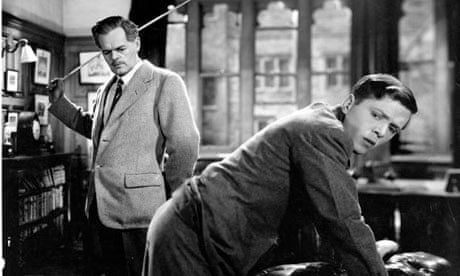
Also, British public schools have inspired entire genres of pornography, and were mostly noted for the British who could afford to spending as little time with their children as humanly possible. Fortunately, these days British public schools feature far less corporeal punishment, homosexual rape, general child abuse, and child abandonment. Quality of education...eh, about the same.
So if you are a student, you're presumably there to learn - solving mysteries taking a "D" priority beyond "Graduate," "Survive," and "Shag That One Goodlooking Girl/Boy in that Class You're in." Teachers are there mainly to earn money, try and shag, drink on the job, and possibly do research or (if they can't avoid it) teach someone. Admin are there to justify their pathetic existences with petty power displays and earn money. Staff are pretty much just there to earn money, unless they really love their job, like Librarians or that one Janitor that has audited every class over thirty years and spends most of the fucking day feeding the feral cats, but he also knows every secret the school has and the president of the college is fucking terrified of him.
If you're not a student or teacher or admin or staff...then why the fuck are you there? This is sort of a critical problem. It's even more critical in an RPG context because, as Frank showed, there isn't a lot of room at the bottom. Unless you're using the stupid apprentice rule system, you start out at Level 1. Level 1 is the lowest you can go. Level 0 isn't just dead, it's pre-life.

Human Head Studios is a Wisconsin video game company. But between 2002 and 2006, they decided to publish a small number of non-electronic games. That division was closed back when Bush Jr. was president, and all web enhancements for this title are now housed on the personal website of the main author: Matt Forbeck. There are also four other authors, but Matt Forbeck is the only author who is also credited for editing, art direction, graphic design, and “creative direction.” This is Matt Forbeck's baby. You probably haven't heard of him. He is... a guy. He has been kicking around minor corners of game design for over a decade. I think he's from Wisconsin, which used to be the heart of D&D thinking and now really really isn't. He does mercenary game design for various companies. Like... Marvel Heroes Battle Dice sort of mercenary game design work. And in 2002, a video game company offered to hire him to do a d20 Harry Potter tie-in with the serial numbers rubbed off. Why the fuck not?
I mean, the second Harry Potter film was just coming out, and someone wanted to cash in on that. But they didn't want to pay money to Rowling and Company, because that involves less money for hookers and champagne. Or cheese. Or whatever the fuck Wisconsin area game companies spend their profits on. Cheese and Settlers expansions or something.
Human Head Studios must have been happy enough with his work, because they brought Matt Forbeck back to make a line of horror board games in their Gothica line over the next several years. He was local and turned his shit in on time, what's not to like? A common complaint about really everything that comes out of Human Head Studios is that it doesn't feel like anything is finished or developed, and their non-electronic games forays get that complaint leveled against them pretty often.

This is a shoddy piece of Ameritrash shovelware, which we will not be doing an OSSR of because it is a board game and not a source book.
It was also well into the d20 bubble, so this kind of thing probably got a few sales just for not looking completely like ass at the right point in time. I mean hell, I found a thread where somebody was doing a Pathfinder conversion for this in 2014. That's pretty bold. There's not a lot of stuff that I look at a decade after it's sell-by date and think "Yes, this just needs a spot of paint and a rules tweak."

I thought it was Groundhog's Day.
And just so we can get this out of the way, for a brief period in the early 2000s I was very...weird about the whole d20 OGL. I liked the idea that I could - finally! - get in on the ground floor of a D&D edition, and I liked that they were innovating a lot of stuff, and that WotC in particular was working toward a united visual aesthetic. But the third-party supplements were quite clearly a weird fucking thing, and there was no guarantee of quality. I was a terrible freak for a little while on what was "canon" and what was "official," and I flipped my shit on things like Kingdoms of Kalamar.

I might need a bribe to go through this one. I accept reviews.
But at the time it was seriously open season, so you had some companies looking to produce generic supplements to cash in on D&D, and other people that did insane stuff like DragonMech and DragonStar and Margaret Weis' Production's DragonLance Campaign Setting (also published in 2003!)
The Foreword is indeed by Margaret Weis. Why? I mean seriously, what the actual fuck? The short story here is probably that she also physically lives in Wisconsin and someone on the project ran into her at the grocery store and offered her a page in their Harry Potter fanfic. Based on what I know about Margaret Weis, I'm sure that she didn't take a whole lot of convincing to do it.

Margaret Weis has herself photographed like this for interviews. The crude clipart picture of her in this book is not unusual for her.
So this foreword is rambling and insane, and written “in-character” as if Margaret Weis was really a fucking warlock and the reader of the book was actually an apprentice mage getting a pep talk after arriving at a boarding school. And that's insane, but the thing is that roleplaying books used to be like that. This rambling, joking, in-world and out-of-world diatribe was just the sort of thing that happened in the 80s. Back when she and Greenwood were vying for dominance of the direction of D&D, that is how they ran shit. And it was crazy. But it seemed normal at the time, because the D&D world was a lot less “settled” than it is today. Back then, D&D wasn't a genre that was established, so people often felt that they needed a more Narniaesque intro to the setting. Bringing characters into the fantasy world from the modern day like it was fantasy fiction from the 1940s because the authors lacked confidence in the genre conventions and wanted to explain shit to naive characters who had the same assumed worldview as the readers. Fuck, the D&D Cartoon started the same way.
It's also part of the traditional 80s-style thing where the book was presented as a sort of "in-world" document, except with shiny typefaces and some really shitting 3D render art and glossy paper. It was designed that way for immersion purposes, like how all Shadowrun place books are written as in-world documents. Unlike Shadowrun, nobody involved in this book had apparently learned a fucking thing about sourcebook design since 1989, so there are mechanics embedded in-text. That's...not a great idea. It's the type of thing FASA stopped doing because they realized that it brought people out of the text when they suddenly ran into a numbers-dense statblock. But on the other hand, most of this book is written up like a fucking extended Dragon Magazine article.
There are five chapters, and we're going to try to do one per post. It's pretty light, so we might do two per post sometimes.
Before we sign off on the foreword, I'm just going to point out that this game was as close as you ever got to a GURPS-style book for D&D 3e. I mean, there were plenty of weird, shitty, generic pseudo-medieval fantasy books about monster sex or human sex or drugs and piercings, but this one was supposedly explicitly designed to be compatible with a bunch of different d20 generic fantasy settings - they specifically name Nyambe, Seven Cities, Freeport, Dungeon World, Codex Arcanis, Scarred Lands, and Sovereign Stone, most of which you probably haven't heard of, just as most gamers today haven't heard of...fucking Arduin, or something.

THerein lies a very different OSSR.
So keep in mind, this is at once a Harry Potter bootleg, and built on a free mechanic skeleton, and marketed as compatible to a bunch of different settings. So this is going to be about as flavorful as calorie-free near-beer.

Add a couple supplements and you too can roleplay your favorite Potterverse fanfic. Engorgio robustus!


